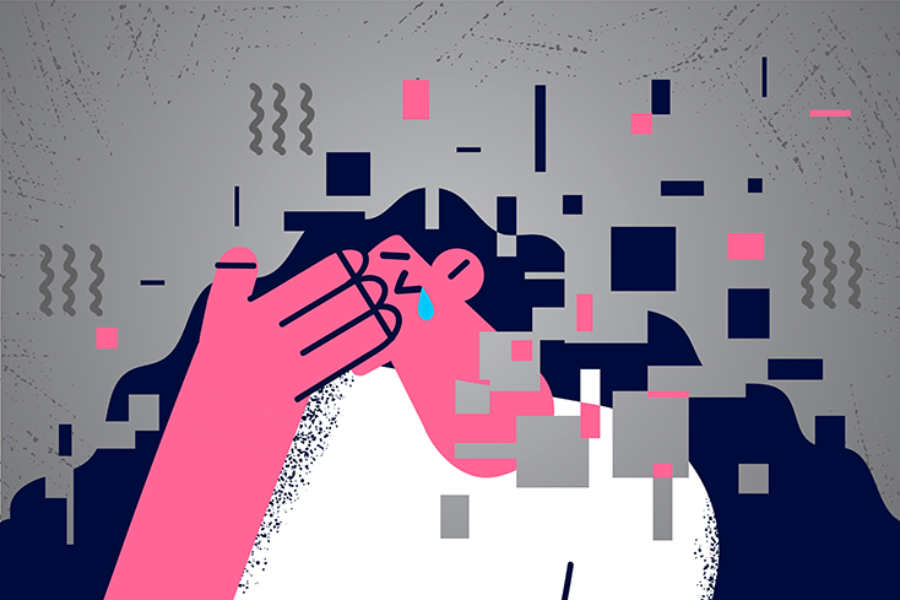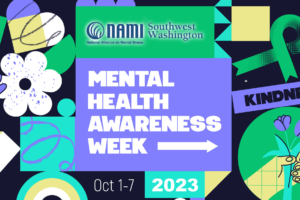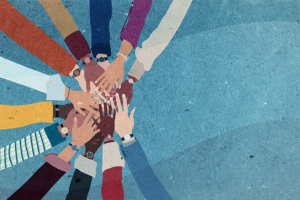Sometime between March 8 and March 15 of this year I was diagnosed with schizophrenia. I was at the psych ward when my doctor looked me in the eyes and said, “Maya, you will be ok.” Despite hearing the doctor’s diagnosis, I still couldn’t believe that I had schizophrenia. I was too focused on getting out of residential treatment so I could return to my life — and the delusions I was experiencing.
If I allowed my delusions to continue without seeking early intervention, I think it would’ve been even more difficult for me to process my internal trauma while receiving treatment. My delusions became my reality; it was all I knew. I created a new life for myself that I adapted to for months before I received help.
I Got Wrapped Up In My Delusions
Due to my illness, I had internalized the belief that I was the chosen one sent to save my basketball team from witchcraft attacks. Players on the team constantly suffered injuries on top of game losses. Their season was going downhill fast, and I believed that there must have been a witch behind the scenes casting spells on them. I knew I had to inform the public about what I was seeing behind the scenes.
I was convinced God put me at the arena and made me a part of this on purpose. I had the “devil” on me, so I was not able to talk to the players until I fought him off. That looked like me rummaging around in my room, sometimes with the Bible in my hand, fighting off hallucinations I saw and three voices that once again included the “devil” himself.
My paranoid thoughts didn’t end there. I constantly experienced the feeling that someone was touching me and breathing on my back. I was convinced that the devil and an ex-coworker of mine were sent to stalk me so I couldn’t reach the team. This delusion, which involved a huge invasion of my privacy, impacted my life greatly; I showered in a night gown and was constantly on guard, fearing they would harm me. I wasn’t going to let them win.
I believed every single delusion to the point where I completely lost touch with reality. I held on so long to the point where my brain couldn’t properly function anymore, and I blanked out. I had no connection to myself anymore. I couldn’t tell you who I was. Luckily, my crisis happened around my family. Everything came to a head at my auntie’s funeral; I was just existing. I had no recollection of where I was, who I was talking to or what I was doing. My family monitored me and drove me home from Atlanta shortly after the funeral. They involuntarily admitted me to our nearest psych ward.
I Learned To Accept My New Reality And Embrace Treatment
While I was in the residential treatment, I went days without knowing what happened to me. It took a week to open my eyes and face the reality of what really happened to me. At first, I thought this hospitalization was all a part of the power struggle going on in my mind — and I had to say a magic word or phrase to break free.
Reality eventually kicked in when I was outside with the rest of the patients, and we lined up to songs we wanted to be played. The music reminded me of my old home in New York. It brought back memories and some nostalgia, and something clicked in me. I was really there; I wasn’t dreaming, and no one was coming to save me.
The hardest part about having schizophrenia is getting off the merry-go-round. You have to plan ahead for possible negative thoughts and be prepared to manage those thoughts when they arise — you cast down your thoughts so you don’t get stuck repeating them. I’ve been in recovery for close to a month now, and I’ve been feeling like myself with medication and therapy. I know I’ll never be the same as I was before my illness, but I have faith that I’ll continue to get better. Psychosis does happen, but it’s not the end.
Maya Jones lives in Charlotte, NC with her mother, father and brother. She has been a member of NAMI since 2018 and is still in early recovery. She hopes to educate the next of people living with schizophrenia. Maya can be followed @empresss_emee on Instagram.
Source:https://nami.org/Blogs/NAMI-Blog/May-2023/Navigating-Early-Recovery-from-Schizophrenia




